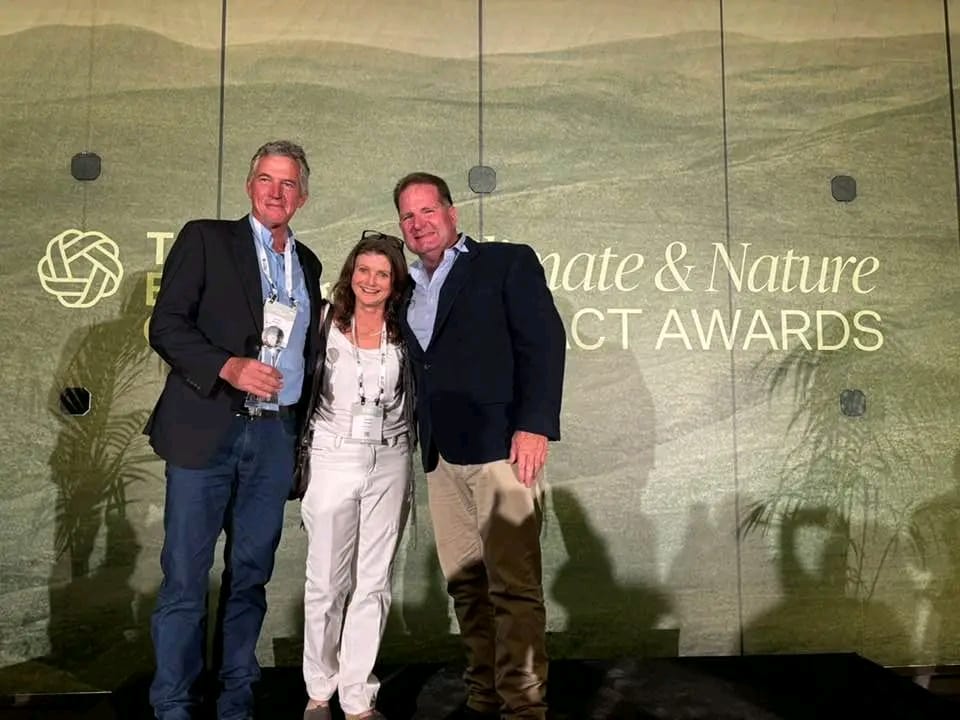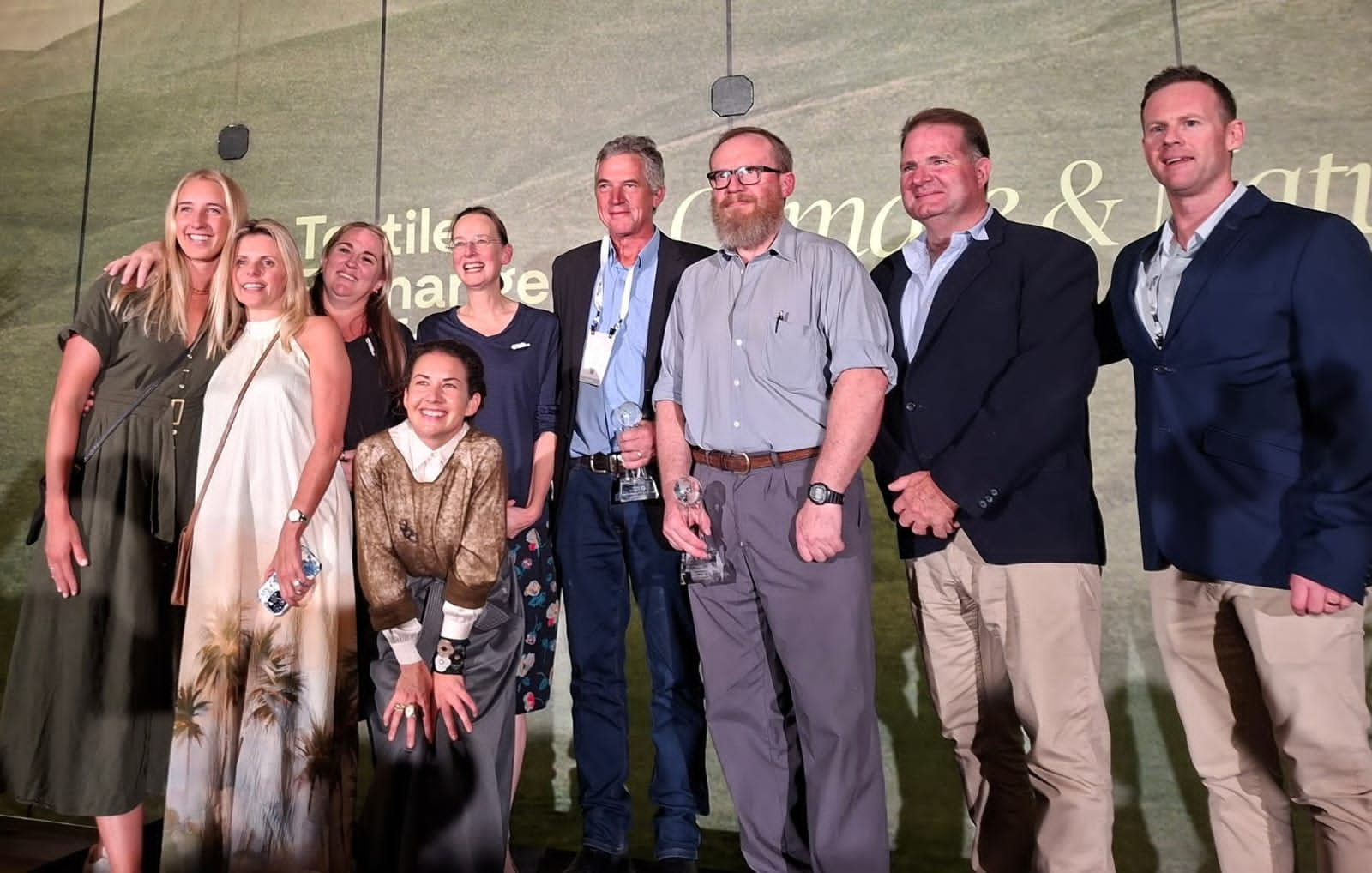Regenerative Grazing Award for South Africa
This year's Textile Exchange Conference took place in Lisbon and their commitment to farmers was highlighted by more than 40 farmers being invited to be part of the event. One of those farmers was our own James Brodie. James was not only invited but received the "farmer of the year award".
This is an incredible honour for James, the South African regenerative community and our wool industry. Part of the award was for James's unending contribution to bringing about regeneration. His continuous work to get the story to as many farmers as possible, to host farmers days and to mentor individual farmers. RegenAg SA has been a major recipient of this generosity and would like to take this opportunity to thank James.

James Brodie, Sandy Brodie, Christopher Hobbs, Source Textile Exchange
The actual tile was:
Regenerative Land Leadership Award
Winner: James Brodie
James won this award because of his deep commitment to regenerative practices and dedication
to supporting other farmers to adopt similar approaches. His efforts have been key to driving
change at scale and creating true landscape-level ecosystem impact.

Siobhan Momberg, Lindsay Humphreys, Bronwyn Botha, Francis van Hasselt, Anna Heaton, James Brodie, Riccardo Fenton, Chris Hobson, Erwin Woolward, Source Textile Exchange
I would also like to thank Textile Exchange for recognising James's contributions and, to quote James, "for their leadership" in bringing the value chain together to solve our collective problems.
The conference was focused on setting the direction of travel toward regenerative, equitable material production systems. It focused on realities that we all need to take heed of. Of disruptions and discontinuities. Of how climate change and market reactions are going to impact our lives and our businesses and how we need to be prepared for them. Of how we need to do this as a value chain.
Having read all of the report back on the conference I could not help but notice how many outcomes were aligned with the view and work of RegenAg SA. Below are a number of extracts and quotes that highlight this.
Progress demands collaboration and systems thinking
Achieving goals requires shared investment, cross-supply-chain collaboration, and aligned sourcing decisions.
Collective financial responsibility, through long-term contracts, blended finance, and shared investment models, is vital to ease pressure on producers and ensure an equitable shift
Need KPIs across the industry that are aligned
The focus on preferred materials needs to shift to preferred production systems
When the supply chain speaks a common language, alignment and co-development can create solutions that enable transformation at scale.
Data is critical
Making this data accessible to all stakeholders, from farmers through to brands, is critical to driving change we can measure.
Economic and environmental models must align
Standards are not just verification tools, they're frameworks for strategy, collaboration, and shared learning.
Measured outcomes must be relevant, transparent, and integrated into continuous improvement cycles.
We're dealing with a lot of uncertainty but we are also seeing a lot of resilience in that uncertainty.
When you have a systemic problem you generally need a systemic solution.
We need to focus on how we can overcome economic barriers to change
To really make progress toward more sustainable systems, we must think long term and look for the "boring but brilliant" (BBB) ideas (Silver Bullets are not the answer)
The arguments for adaptation must lean into the numbers and make business sense, repackaged in a way which speaks to the operations and finance teams in their own language
Building resilience through deeper collaboration between producers and brands
We need to support farmers through volatility, align brand strategies with long-term supply security, and create the enabling conditions for landscape-level change
Resilience requires systemic transformation and shared responsibility across the value chain
We need to have infrastructure that facilitates action
Economic barriers like high upfront costs, uneven risk, and limited access to finance for producers are slowing the transition needed
Need a collective strategy to cope with rising regulation
Best practices gain power when they're verified. However, verification must be adaptable, with no one-size-fits-all approach. It must be tailored to context, scale, and purpose
